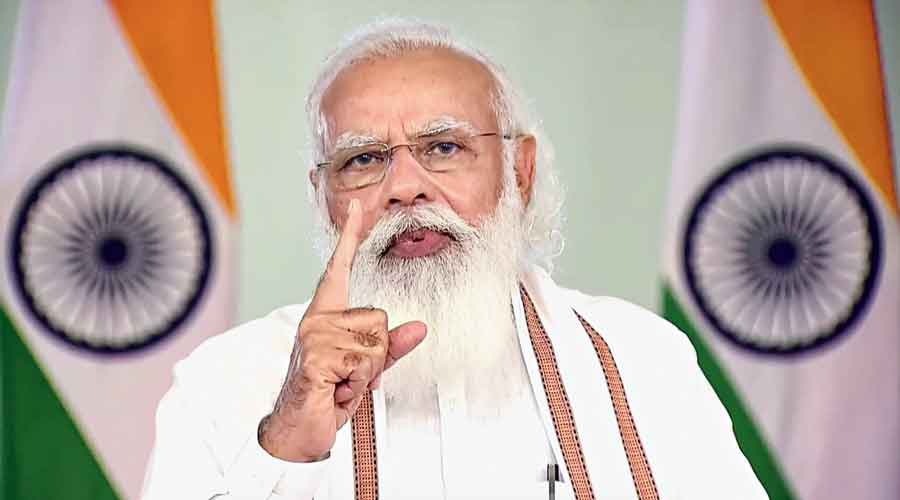Prime Minister Narendra Modi on Wednesday tom-tommed the virtues of his Atma Nirbhar Bharat initiative, urging India Inc to plug into the booming opportunities for Made in India products even as he tried to lure foreign investors with the promise of greater reforms, quicker approvals, low taxes and a benign regulatory environment.
Modi seemed to skate on a thin ice of paradoxical positions as he told the captains of industry at the CII annual summit that the responsibility for the success of India’s self-reliant mission critically depended on them.
“Company bharatiya ho ye jaroori nahi; lekin aaj, har bharatiya bharat mein bani product ko apnana chahata hai (Every Indian wants to adopt Indian products even though the company making those products might not necessarily be owned by Indians),” he said, signalling that foreign investment in Indian companies would get an easy ride into the country but foreign brands may have to brace for tricky challenges. That is just the sort of double talk that will make foreign companies leery about committing funds to a very uneven economic terrain.
Last week, the Modi government scrapped the retrospective element in a tax provision introduced by the UPA in 2012 but stuck to the principle of taxing indirect transfers of capital assets like shares held in tax-haven based companies that derive their value from an underlying Indian entity. The issue had snowballed into a major controversy after the Supreme Court found no merit in a tax demand slapped on Vodafone plc for its $11.1-billion buyout of a golden share in a Cayman Island based subsidiary in 2007, giving it a 67 per cent stake in Hutchison Essar’s telecom entity in India.
Modi said his government had rectified mistakes by doing away with the retrospective taxation and hoped that this would build trust between the government and industry. But he glossed over the fact that the principle of taxing indirect capital asset transfers, irrespective of the residence of the entity, had been rejected by the apex court.
All Vodafone-type deals post May 28, 2012 will still fall within the ambit of the amendment in the source rule of taxation laid out in section 9 (1) (i) of the Income Tax Act.
Curiously, the Modi government has made no effort to scrap the 55-year retrospective element in the tax law amendment in Section 132 of the IT Act that it introduced in 2017 that freed tax authorities from the obligation to disclose “to any person or any authority or the Appellate Tribunal’’ why they had “reason to believe” or “reason to suspect” that a tax assessee is concealing assets and which would serve as sufficient ground for ordering a search and seizure operation.
This is the clearest reminder that the government hasn’t junked the principle of retrospective tax law changes.










